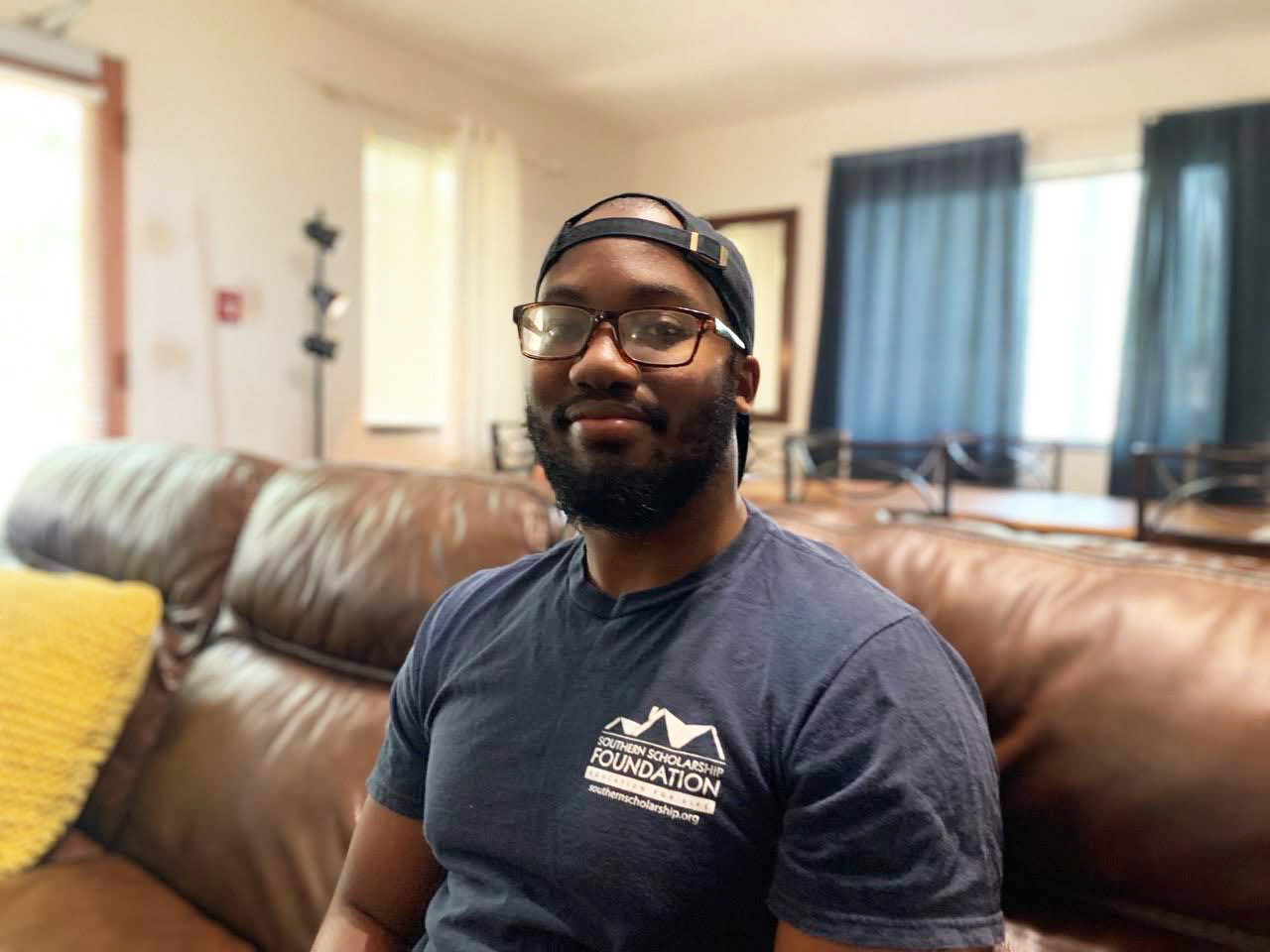Rent-Free Student Housing in Florida Help Postsecondary Students Succeed
August 14, 2019
By Julie Bos, ECMC Foundation Contributing Writer

Affordable housing—just steps away from a college campus—would be critical to the success of any student struggling with housing insecurity and the rising costs of going to college.
It certainly was for Clifford Pierre, a 21-year-old recent graduate of Florida State University (FSU), and beneficiary of the Southern Scholarship Foundation (SSF)’s housing program. Born in Haiti, where his mother still lives, Clifford grew up in Florida living with his aunts and uncles who shared the responsibility of raising him. By the end of high school, he had strong grades, but few financial resources for college.
During FSU’s Center for Academic Retention and Enhancement summer bridge program in 2015, Clifford learned about SSF, which provides rent-free housing for Florida students pursuing a college education who demonstrate academic merit and financial need. The current SSF model includes more than 450 students living in 27 houses across the state and attending one of SSF’s seven partnering state colleges and universities.
Having a reliable, safe place to come home to each day, a quiet place to study, and a stable environment to recharge after a grueling day of classes and work, is essential for student success. For many students, housing makes the difference between crossing the graduation stage and dropping out.
In 2015, Clifford applied, was accepted, and moved into a house with 16 other male students, located right across the street from FSU.
“I really liked the diversity within the house—I was living with people from all different backgrounds, religions and experiences,” he said. “There was always someone home to talk to, and there was always food available. We had group dinners Monday through Thursday, which was always a good opportunity for all the residents to eat together and talk about their days. There are so many great things about SSF, but my favorite part is the positive, family-like community—everyone just wants to see you succeed.”
The residents of SSF not only earn their degrees at the end of the college journey but also an “Education for Life”— SSF’s motto. Within SSF’s community living model, students are expected to share cooking, cleaning and budgeting responsibilities, while also assuming leadership roles within the houses and maintaining a minimum 3.0 GPA. Learning how to juggle multiple responsibilities is an important life skill for students.
For Clifford, the benefits were profound.“SSF eliminated all of the mental and emotional stress related to worrying about money,” said Clifford.
Residents also pay a small fee each semester that covers meals, utilities, cable/Wi-Fi, house and cleaning supplies. The living arrangement made it possible for Clifford to focus on his studies. “I always had access to everything I needed—meals, internet, a place to sleep, a laundry room, and a centralized study hall just for SSF students.”
Thanks to SSF, Clifford is continuing his education. After graduating from FSU in spring 2019 with a bachelor of science in exercise physiology, he is now pursuing his master’s degree, and can remain in SSF housing until he reaches his goal.
Quantifying and Evaluating SSF with the Goal to Scale
Students struggling with housing insecurity is not rare across college campuses. Researchers at the Hope Center for College, Community and Justice estimate that as many as 1 in 2 college students grapples with housing insecurity, and that as many as 1 in 10—or even more—deals with homelessness.
The availability of programs like SSF makes it possible for students like Clifford to attend college. In fact, in a recent survey, 43% of SSF’s residents said they would not have been able to attend college without SSF.
With aims to optimize their program and impact for more students like Clifford, SSF seeks to understand its program’s exact intervention strengths. Currently, with a grant from ECMC Foundation, SSF is conducting a rigorous evaluation that will quantify the program’s impact on student outcomes, such as persistence and completion rates, and document promising and best practices that could be replicated and scaled to support more students across colleges nationwide.
“Colleges need to identify viable, effective and sustainable approaches to address this problem and keep students in college,” said Dr. Lara Perez-Felkner, co-investigator on the SSF evaluation and Associate Professor of Higher Education and Sociology at FSU.
Other research partners supporting the mixed-methods evaluation include the Hope Center for College, Community and Justice at Temple University, and Knowli Data Science. The evaluation study will continue through 2021, and SSF will start sharing preliminary findings as early as this fall.
“It’s exciting to be part of this very data-rich evaluation study,” said Dr. Perez-Felkner. “We’re hopefully going to be able to tell stories of student experiences in a way that will not only bring their stories to life, but also shine a light on how we can affect positive change for many others.”
